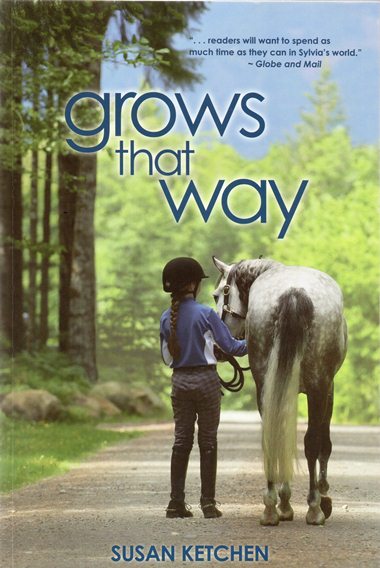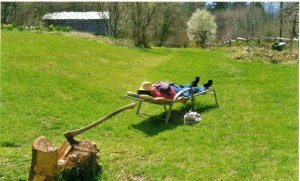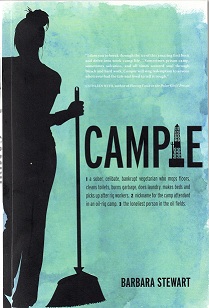For the normally reclusive author, one of the essential components of new book promotion is — unfortunately — The Launch. Even if a formal affair — at a gallery, with offerings of wine, fancy finger-food from an exotic caterer and napkins that look like works of art — is avoided, the venue is but one of many many decisions which must be made.
The date should be close to the issuing of the book, but not so close that you’re in heart failure for days before, worrying about whether you’ll have stock on hand. You also have to decide how and when to advertise the event, who to invite, how many chairs, how much standing room, who will sell the books, and oh yes, what you’re going to say during your presentation.
But for me, the first and most daunting question, every time (and I’ve launched three books) is always and immediately: What am I going to wear? Perhaps for most people this is not a difficult problem to solve. But I live on a small farm, and spend days on end seeing no one other than people on neighbouring farms and sometimes the Hydro meter reader.
On the few occasions I go to town for groceries or chicken feed, my standard of dress aims not for style but for cleanliness. I have no idea what is currently fashionable. Reading the Style section of the Globe and Mail is absolutely no help — I’m sure they are catering to people on another planet, the one called “Toronto.”
For one launch, I threw myself on the mercy of the clerk in a fashion store. I told her I needed to stretch beyond my usual comfort levels, but in retrospect I think she was bored and looking for someone to play a practical joke on. I still can’t bear to look at photos of that launch. I wish I’d tucked in my shirt the way I wanted to and not left it dangling the way I was told I must.
For another event, I had my ensemble well planned in advance, something light and airy, to minimize sweat (us farm folks sweat) under the hot lights in a small room. On the day of the event, it snowed. This was March, on Vancouver Island, where often a whole winter can pass by with no snow at all. Back to the drawing board.
And then there’s the shoe problem. In my closets I have riding boots, rubber boots, hiking boots and runners. When I try on clothes in fashion stores, the clerks are known to say, “You won’t be wearing those shoes, will you?” They will be looking askance at my (newest) runners, which are inexplicably dirtier in town than they were when I left the farm. There is often a piece of hay stuck to the laces, because on the way out the driveway I had to stop and respond to a plaintive expression from a horse who thought he was hungry.
It occurs to me, re-reading this ridiculous state of affairs, that perhaps fretting about clothing is a form of procrastination, as I avoid thinking about what surely is the main point of the event: What am I going to talk about?
Well, I could go on about that too, and I would, but the thought of it is making my palms sweat, which is not good for the keyboard.
Paula’s note: I also suffer from outfit anxiety before a book launch. I wonder if this is something only female authors go through?
As for Susan’s book, Grows that Way, I was reading it in bed one night and kept laughing out loud and waking my partner up. I’m long past being a young adult but the original plot, feisty characters and fresh writing kept me reading – and stifling chuckles — until the wee hours of the morning. You can find out more about Susan at www.susanketchen.ca.



 writing Campie was to tell a story about failure and hope. The underbelly served a purpose. Although it took a few deep breaths to own the introduction, “a sober celibate bankrupt vegetarian …”
writing Campie was to tell a story about failure and hope. The underbelly served a purpose. Although it took a few deep breaths to own the introduction, “a sober celibate bankrupt vegetarian …”